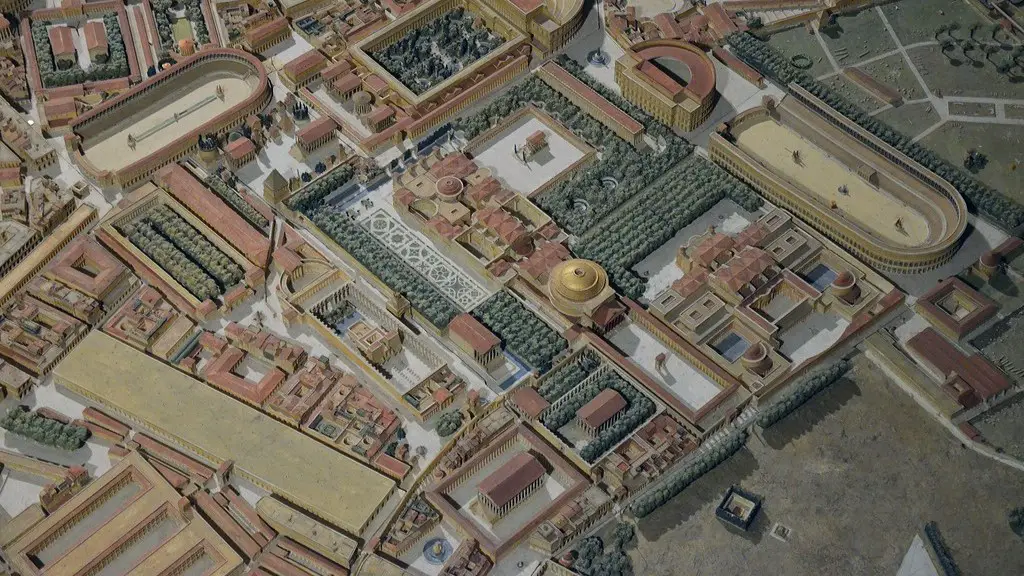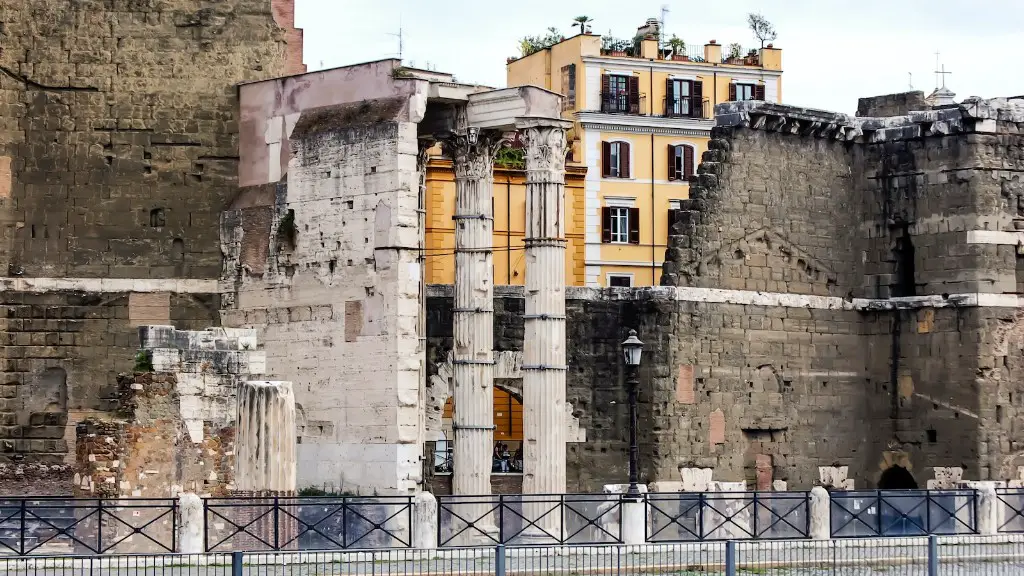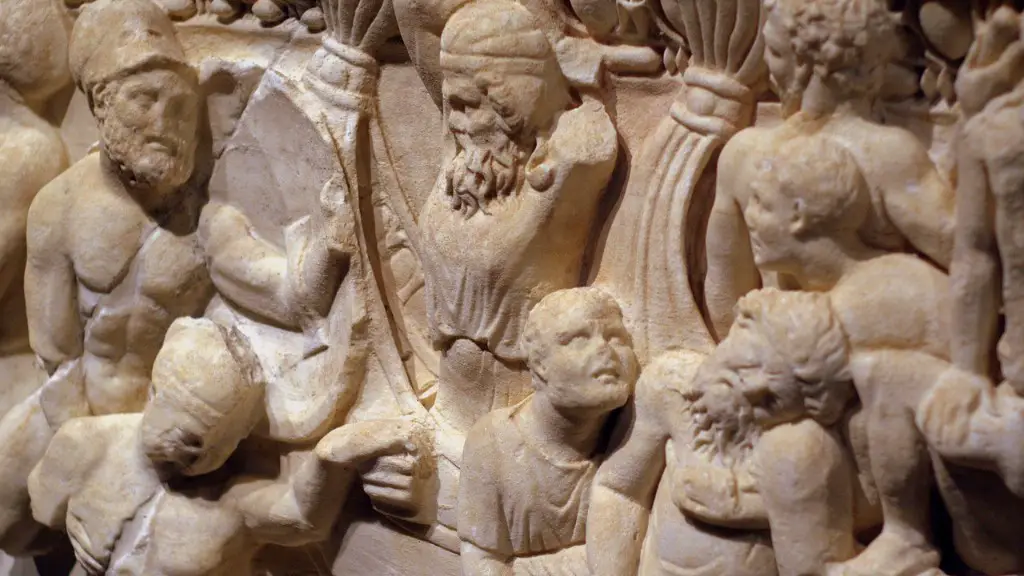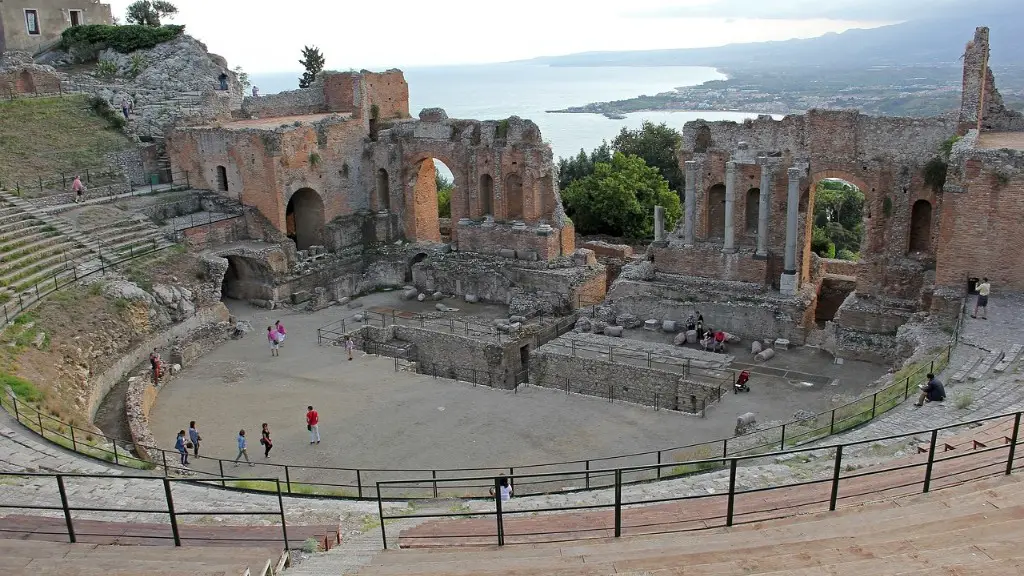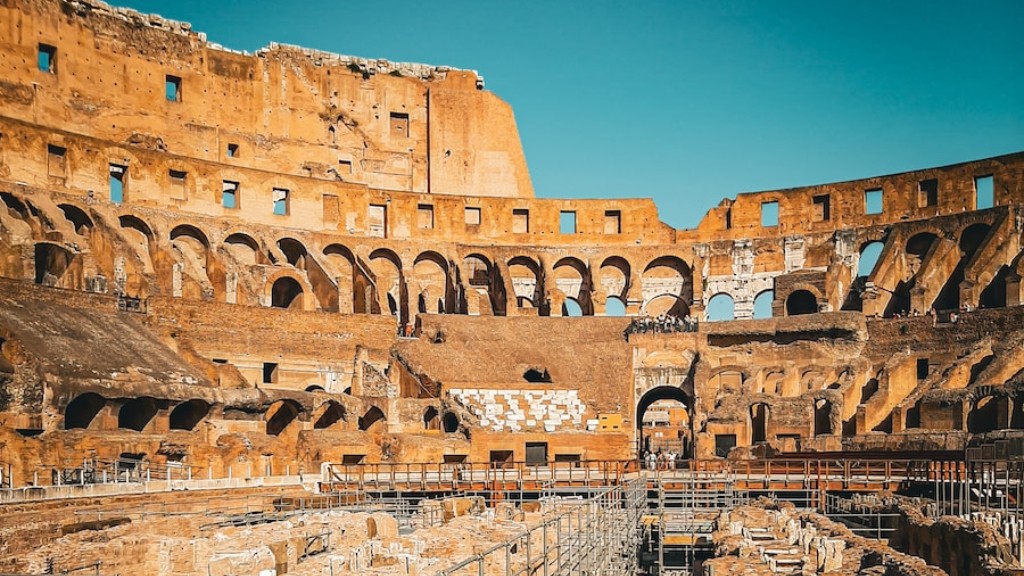The Early Roman Reception To Christianity
The earliest presence of Christianity in Rome is believed to have occurred in the 1st century AD during the time of Emperor Nero. During this period, Christianity was initially seen as clandestine and subject to persecution by the Roman authorities. It was speculated that the nascent Christian community in Rome was comprised of mainly Jews who had come to residence in the city, along with some pagan converts.
At the outset, Christianity was not well-received by the Roman government and its people. The concept of One God, the lack of sacrifices to their gods, and the challenging of their traditional values were seen by many at the time as a deluded, dangerous and subversive set of beliefs. This, on a political level, caused quite a bit of uneasiness for the Roman authorities who saw it as a threat to their cultural and religious order.
There were various punitive measures from Rome against its early Christian community, most prominently the executions of many of its leading figures such as Peter and Paul in the year 68. The persecution of Christians escalated further during the rule of Emperor Nero, when it is said that nearly three thousand Christians had been put to death. This was largely followed by similar periods of violent repression throughout the remainder of the 1st and 2nd century.
The Social And Political Context Of Christianity In Ancient Rome
From a religious standpoint, the Roman elite viewed early Christianity as a very problematic set of beliefs due to its devotion to One God, the renouncing of collective practices, and the refusal to pay homage to their local gods. This belief system was seen as in conflict with the traditional Roman cultural and religious values, and its strange practices were seen as undeniably subversive by their rulers.
Moreover, the deliberate exclusion of the early Christian community in the imperial cults, which were at the core of Roman political unity, rendered Christianity an economic threat to the empire. It was for this reason that the punishments for practicing this religion were so severe.
Many of the early Christian writers such as Justin Martyr, Hippolytus, and Tertullian wrote of the persecution of Christians in Rome. The accounts of these writers gave the public a clear picture of the risk of continuing to practice the religion and display their faith in this kind of hostile environment.
The Legalization Of Christianity In Rome
It was not until the end of the 3rd century AD when Emperor Constantine converted to Christianity and granted it the status of being a legally permissible religion, alongside paganism. This was a major milestone in the history of Christianity and it marked the beginning of the Church’s dominance in the Roman Empire.
Constantine’s conversion brought with it an increasingly lenient attitude towards Christian beliefs and practices. This led to the repeal of most existing anti-Christian laws, granting Christians freedoms such as the right to practice their faith and the freedom of religious expression.
The Edict of Milan in the year 313, which was issued by Constantine and co-emperor Licinius, declared that both paganism and Christianity were to be supported by the state. This declaration had a major influence on Christianity’s legalization in Rome and resulted in a dramatic shift in the status of the religion.
The Edict of Milan and Constantine’s fervent religious devotion were major catalysts to the Church’s emergence as an influential and powerful religious body in the Roman world. The subsequent period of the 4th century saw a marked shift in power, as the Church gradually asserted its distinction as an authoritative religious body, with privilege and legal recognition over other religions.
The Impact Of The Legalization Of Christianity In Rome
The legalization of Christianity in Rome had a major impact on the subsequent history of the Roman world. It led to the development of new and influential religious institutions and sparked a period of significant social and political change. The legalization of Christianity allowed for a newfound freedom for its followers, enabling them to spread their faith through missionary efforts and develop a closer relationship with the state.
The newfound freedom also gave rise to a more coherent and unified Church, through the consolidation and legitimization of their beliefs across the empire. This ultimately paved the way for the emergence of Roman Catholicism as the major Christian faith in Europe.
Moreover, the legalization of Christianity was seen as an important cornerstone of the medieval spiritual and political order in Europe, laying the foundations for the Church to become an increasingly powerful force in the medieval world.
The consequences of legalizing Christianity in Rome reverberated throughout the Roman world, with a lasting impact still felt to this day. The legalization paved the way to a period of major religious, social and political change, which eventually led to the definitive establishment of Christianity as the major religion of Europe.
The Role Of Emperor Constantine
Emperor Constantine’s role in the legalization of Christianity in Rome was crucial. His conversion to the faith in 312 AD was the catalyst for the gradual shift from the Roman government’s hostile attitude towards Christianity to its eventual legalization in 313 AD. Constantine was influential in granting his new faith the same privileges and protection as other religions had, thus leading to increased religious freedom for Christians.
Moreover, Constantine’s pro-Christian policies contributed to the eventual consolidation of the religion in Rome. The Emperor’s personal devotion to the faith and his patronage of the Church led to the spread of Christian culture and beliefs across the empire.
Constantine’s political and religious acumen in making Christianity a legal religion in the Roman Empire was an important factor in the Church’s emergence as a major religion in the medieval period. His actions were instrumental in defining the role of Christianity in the future of European civilization and culture.
Legacy Of Legalizing Christianity In Rome
The legalization of Christianity in Rome is a major event in world history. Its consequences have reverberated through the centuries, and it has had a major effect on the development of religious, political and social structures in Europe and the wider world.
The significance of this event has to be understood in the context of the time when it occurred, a time of significant social, political, and religious change in the Roman world. The legalization of Christianity in Rome was at the heart of this complex process, marking the beginning of a new period of religious and political unity under the banner of Christianity.
The legacy of this event still remains, in the form of the dominant religious, social, and political structures that were formed in its aftermath. Christianity has become the predominant faith in Europe, and its influence still continues to permeate the continent to this day.
The Final Word On Legalizing Christianity In Rome
The legalization of Christianity in Rome was a major event in world history, with its consequences being felt to this day. The actions of Emperor Constantine were key in paving the way for the Church to become a major force in the Roman world, with a lasting effect on the development of religious, political, and social structures throughout Europe.
The legalization of Christianity was an important milestone in the history of the faith, and it is a testament to the resilience and determination of the early Christian community in Rome against overwhelming odds.
The legacy of this event can be felt throughout the world and includes the development of the Church as an influential force in the medieval period, and the emergence of Roman Catholicism as the dominant form of Christianity in Europe. The legalization of Christianity in Rome was an important sign of the faith’s resilience and endurance throughout the centuries.
